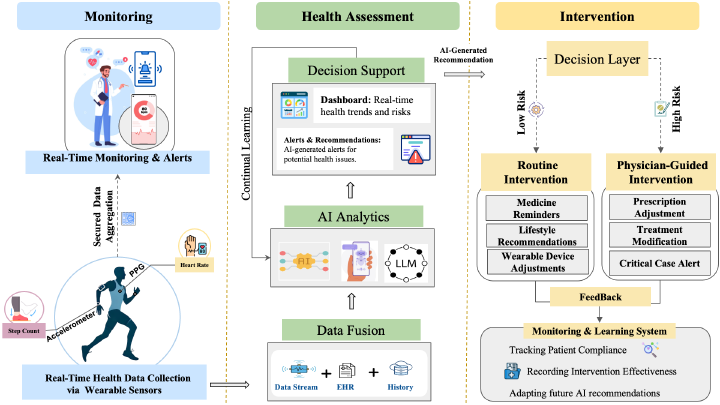AI-Powered Wearable Sensors for Health Monitoring and Clinical Decision Making

Abstract
AI-powered wearable sensors are transforming remote health monitoring by enabling real-time diagnostics, personalized interventions and proactive disease management. This review synthesizes recent advances in AI-integrated biosensors across conditions such as diabetes, cardiovascular disease, neurodegenerative dis- orders, mental health, and maternal/neonatal care, while addressing challenges of scalability, privacy, interoperability, and model robustness. We highlight machine learning methods—including federated learning, transfer learning, and edge- AI—that enhance the processing of physiological signals i.e., glucose levels, gait patterns, and heart rate variability. Key innovations, including FDA-approved glucose monitors and digital twins for predictive health modeling, underscore the shift toward patient-centric and data-driven care. Yet, persistent gaps remain, including device heterogeneity, privacy concerns, and the need for adaptive models that generalize across populations. Emerging approaches such as large language models and counterfactual explanations provide contextualized insights and transparent decision-making. By bridging technical advances with clinical needs, this review charts a roadmap toward democratized, equitable, and precise healthcare.